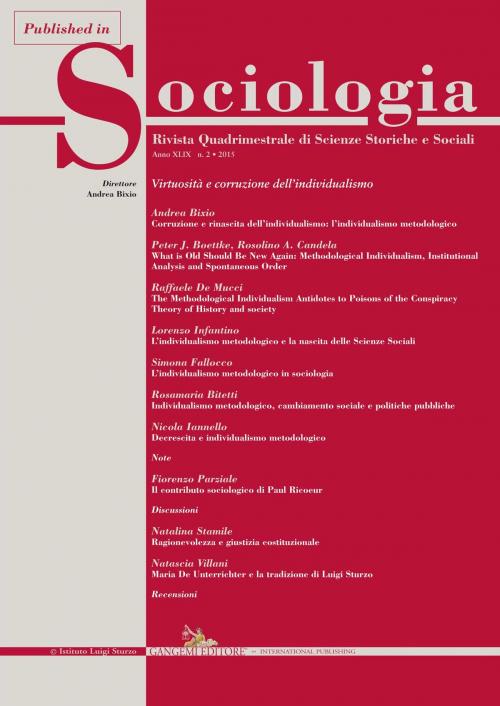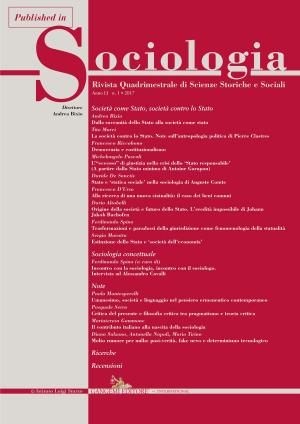The Methodological Individualism Antidotes to Poisons of the Conspiracy. Theory of History and society
Published in Sociologia n. 2/2015. Rivista quadrimestrale di Scienze Storiche e Sociali. Virtuosità e corruzione dell'individualismo
Nonfiction, Social & Cultural Studies, Social Science, Sociology| Author: | Raffaele De Mucci | ISBN: | 9788849225907 |
| Publisher: | Gangemi Editore | Publication: | April 26, 2016 |
| Imprint: | Gangemi Editore | Language: | English |
| Author: | Raffaele De Mucci |
| ISBN: | 9788849225907 |
| Publisher: | Gangemi Editore |
| Publication: | April 26, 2016 |
| Imprint: | Gangemi Editore |
| Language: | English |
In the following paper the tradition of methodological individualism is employed as a powerful antidote to the mentality underlying the so-called “conspiracy theory”. After listing some of the most popular alleged conspiracies of our time, it is argued that conspirationism falls short of the most basic requirement of scientific inquiry, namely the falsifiability of empirical statements. More importantly, it is contended that conspiracy theories are a form of determinism or theism, which assumes that all the results of human interaction are planned and controlled by some more or less personified entity. Conspirationism systematically overlooks the existence of the unintended consequences which, as explained by methodological individualism, inevitably springing from intentional human action. By creating an unsustainable dichotomy between those who are immunes from the effects of the conspiracy and thus can expose it to the unaware public, it also fails to understand the dispersion of knowledge within society and the instrumental role of science and democracy in understanding social arrangements.
In the following paper the tradition of methodological individualism is employed as a powerful antidote to the mentality underlying the so-called “conspiracy theory”. After listing some of the most popular alleged conspiracies of our time, it is argued that conspirationism falls short of the most basic requirement of scientific inquiry, namely the falsifiability of empirical statements. More importantly, it is contended that conspiracy theories are a form of determinism or theism, which assumes that all the results of human interaction are planned and controlled by some more or less personified entity. Conspirationism systematically overlooks the existence of the unintended consequences which, as explained by methodological individualism, inevitably springing from intentional human action. By creating an unsustainable dichotomy between those who are immunes from the effects of the conspiracy and thus can expose it to the unaware public, it also fails to understand the dispersion of knowledge within society and the instrumental role of science and democracy in understanding social arrangements.















